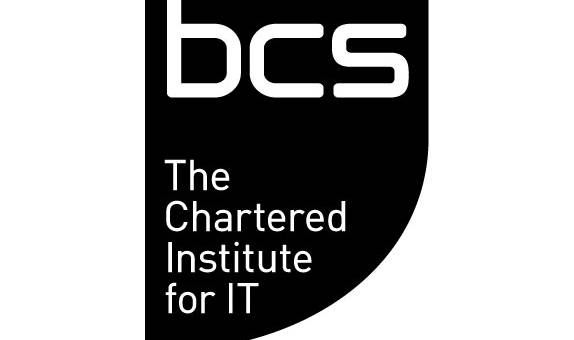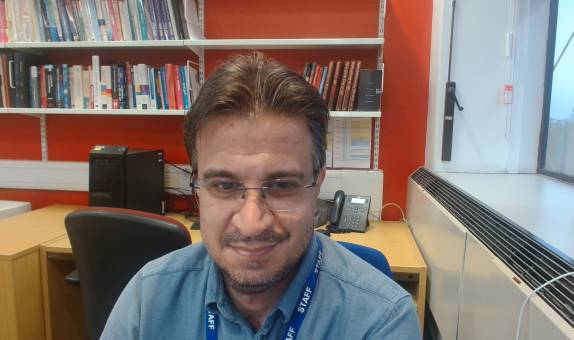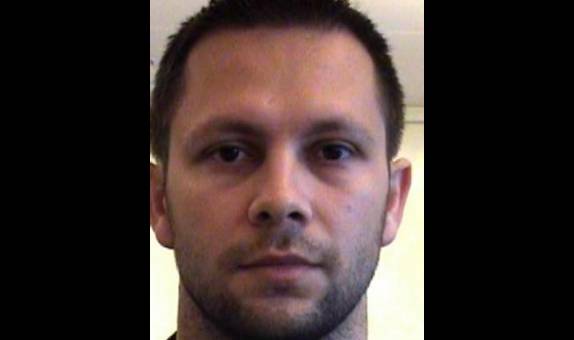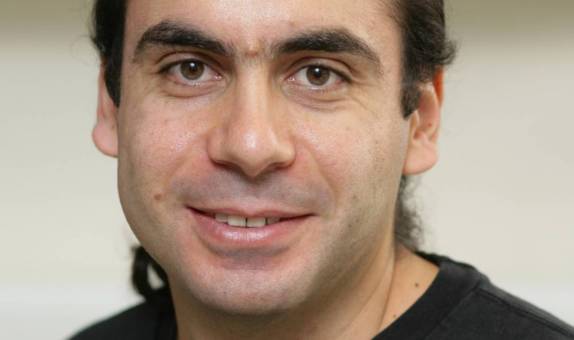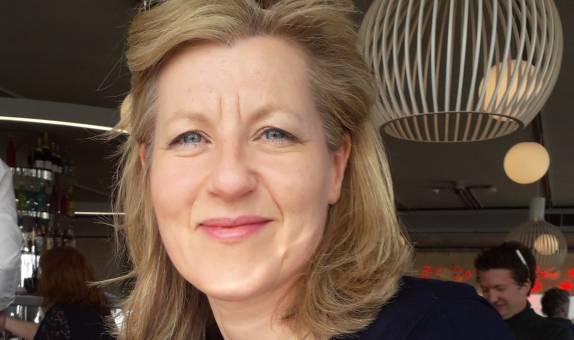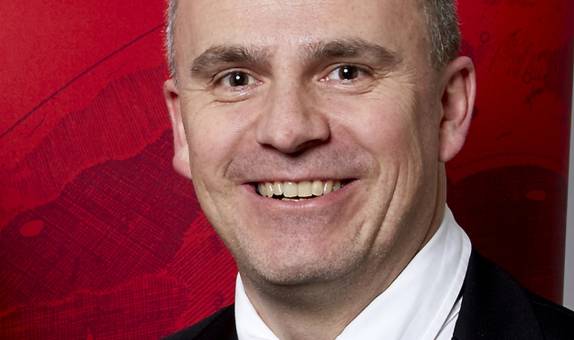Data Science Conversion MSc
Why choose this course?
Data Science is one of the most rapidly expanding areas of employment globally, due to fast-paced and ongoing developments in computer systems and data gathering. Large data sets are widespread in business, science and government.
This conversion course is part of the government's response to the shortage of data science and artificial intelligence specialists in the UK. It aims to help students without strong backgrounds in programming or statistics to acquire a level of skill in these areas and learning to apply them.
Please note that this course will begin earlier than other Kingston courses, to allow us to deliver a two-week ‘boot camp' of intensive pre-sessional teaching, to equip you with the technical skills needed to complete the course.
To be eligible for this conversion course, students must meet the nationality or residence status criteria to qualify for a postgraduate masters loan.
| Mode | Duration | Start date |
|---|---|---|
| Full time | 1 year | September 2025 |
| Part time | 2 years | September 2025 |
| Main Location | Penrhyn Road |
Reasons to choose Kingston University
- This course aligns with a thriving area of applied machine learning research, giving opportunities for exposure to plenty of cutting-edge examples and exercises.
- This course has flexible entry points and has been designed for a variety of disciplines and backgrounds.
- Like many MSc courses in the School of Computer Science and Mathematics, Data Science Conversion benefits from a diverse community of learners. You will study in week-long blocks that can fit around different work/study patterns.
Accreditation
This degree has been accredited by the British Computer Society (BCS), the Chartered Institute for IT. Accreditation is a mark of assurance that the degree meets the standards set by BCS. An accredited degree entitles you to professional membership of BCS, which is an important part of the criteria for achieving Chartered IT Professional (CITP) status through the Institute.
Some employers recruit preferentially from accredited degrees, and an accredited degree is likely to be recognised by other countries that are signatories to international accords. This degree is accredited by BCS for the purposes of partially meeting the academic requirement for registration as a Chartered IT Professional.
What you will study
The multidisciplinary nature of data science is reflected in this MSc programme. The combination of modules in data management, analysis, modelling, visualisation and artificial intelligence (AI), are taught by a cross-disciplinary team. The team's collective expertise encompasses mathematics, statistics, AI and machine learning, information management, and user experience design.
For a student to go on placement, they are required to pass every module first time with no reassessments. It is the responsibility of individual students to find a suitable paid placement. Students will be supported by our dedicated placement team in securing this opportunity.
Modules
The programme is made up of four modules each worth 30 credit points plus an individual project worth 60 credits. The optional Professional Placement can be undertaken following completion of the other modules. The optional Professional Placement taken during an additional year will give 120 credits.
Please note that this is an indicative list of modules and is not intended as a definitive list.
Core modules
Databases and Data Management
30 credits
In this module students will be introduced to the methods, techniques and tools that organisations use to collect, manage, store and secure data. Different approaches and methods will be explored to model data requirements using structured and unstructured databases. Students will also be introduced to data warehousing architectures and concepts in "big data". Essential knowledge of data security issues, including policies, structures and practices used to ensure data security and confidentiality, and the way that such issues are addressed in practice, is also examined.
Data Analytics and Visualisation
30 credits
This module introduces the core concepts of data analytics, starting from elementary statistics applied to data-driven decision making, progressing through more sophisticated software-supported data analysis to the presentation of information and its persuasive effect, with applications to business strategy, demographics and social analytics.
Applied Data Programming
30 credits
This module emphasises a practical and applied approach to programming and software skills for data scientists which differs from typical software engineering approaches in that the emphasis is on the use and manipulation of data using languages and platforms designed for use in real-life, data-driven problems. The languages and platforms are considered only as far as their use for data manipulation are needed with limited exploration of underlying theory or data structures. This prioritises practical implementation including locating, accessing, loading, manipulating, securing, storing and describing data, and enables the introduction of aspects of data analysis, data-mining and machine learning provided by the chosen languages and platforms.
Project Dissertation
60 credits
This module constitutes the major individual piece of work of the masters programme where the student carries out a project involving independent critical research, design and implementation (where applicable).
On successful completion of the module, students will be able to:
- Select, justify and use effectively the research methods and techniques appropriate for particular cases in order to carry out a literature search and an independent work of research
- Critically identify the need to position their research in the wider academic or business context and structure the dissertation format to agreed conventions
- Plan, manage and critically evaluate the project using the techniques and tools needed in order to bring it in successfully on time and within resourcing limits
- Identify and critically analyse real-world problems or knowledge gaps to which academic concepts and methods can be realistically applied to improve or resolve the problem situation
- Apply skills to show an ability to engage in academic and professional communication with others in their field through report and presentation
- Present critical awareness in applying appropriate legal, social or ethical obligations and when required, respond to the financial and other constraints of a corresponding business environment.
Machine Learning and Deep Learning
30 credits
This module introduces fundamental concepts and methods in Classical Machine Learning and Pattern Recognition as well as Neural Networks and Deep Learning. You will firstly be introduced to classical methods, before being taught modern approaches. You will then be exposed to applications related to your course. The module is taught in a practical fashion and therefore some knowledge of a programming language is required.
Professional Placement
120 credits
The Professional Placement module is a core module if you're following a masters programme that incorporates an extended professional placement. It provides you with the opportunity to apply your knowledge and skills in an appropriate working environment, and develops and enhances key employability and subject specific skills in your chosen discipline. You may wish to use the placement experience as a platform for a major project or your future career.
It is your responsibility to find and secure a suitable placement opportunity; this should not normally involve more than two placements which must be completed over a minimum period of 10 months and within a maximum of 12 months. The placement must be approved by your Course Leader prior to commencement to ensure its suitability. You will have access to the standard placement preparation activities offered by the Student Engagement and Enhancement (SEE) group.
Read more about the postgraduate work placement scheme.
Please note: You will be required to complete a ‘boot camp' of intensive pre-sessional teaching before starting your course in September: introducing you to baseline programming, statistics, and data modelling.
Work placement scheme
Many postgraduate courses at Kingston University allow students to take the option of a 12-month work placement as part of their course. The responsibility for finding the work placement is with the student; we cannot guarantee the placement, just the opportunity to undertake it. You may find securing a professional placement difficult as they are highly competitive and challenging, but they are also incredibly rewarding. It is very important to prepare and apply yourself if this is the route you wish to take. Employers look for great written and oral communication skills and an excellent CV/portfolio.
Find out more about the postgraduate work placement scheme.
Entry requirements
Teaching and assessment
The learning, teaching and assessment strategies reflect the programme aims and learning outcomes, student background, potential employer requirements, and the need to develop a broad range of technical skills with the ability to apply them appropriately.
The use of coursework emphasises more authentic assessments. These could be from business or research contacts in local SMEs or colleagues working with "big data" in the NHS, with appropriate ethical and IP approval, as necessary. For example, students will typically create applications, documentation and visualisations, write reports and give presentations. Students will have the opportunity in some assignments to identify topics and target audiences in consultation with teaching staff. This enables them to express their individuality and appreciate the diversity within the course.
As students progress through the course, they are guided and supported to assemble a portfolio of tangible outputs which evidence, explicitly, the knowledge and skills they have gained. This portfolio may be used to demonstrate the students' capabilities to future employers in a format that can be influenced by the students' own preferences.
Who teaches this course
The course is taught at the School of Computer Science and Mathematics.
The School of Computer Science and Mathematics is driven by the philosophy of 'learning through making'; we focus strongly on facilitating a hands-on experience, student led and owned product portfolios and producing industry-ready graduates.
We utilise a range of innovating teaching and learning approaches in our invigorated and modernised degree programmes; combining studio practices, project-based learning, and context driven lectures to facilitate an informed approach to problem solving.
Postgraduate students may run or assist in lab sessions and may also contribute to the teaching of seminars under the supervision of the module leader.
Our modern teaching environment at Kingston University
There is a wide range of facilities at our Penrhyn Road campus, where this course is based. You will have access to a modern environment with the latest equipment, including:
- dedicated postgraduate computing laboratories, fully-equipped with fold-flat LCD screens, data-projection systems and high-spec processors
- industry-standard development software and tools, such as Python, Scikit, Learn and Tensorflow
- the learning resources centre, offering subject libraries, online database subscriptions and resource materials.
Our dedicated team of IT technicians supports the labs and is always on-hand to provide assistance.
Resources in London
Kingston is just a 30-minute train journey from central London, where you can access a wealth of additional libraries and archives, including the British Library and the Institute of Engineering and Technology.
Course fees and funding
Here you can find more details about fees for this course, as well as any funding opportunities available to you for this course. Please note that fees relate to the academic year in question and will increase in future years.
Additional costs
Depending on the programme of study, there may be extra costs that are not covered by tuition fees which students will need to consider when planning their studies. Tuition fees cover the cost of your teaching, assessment and operating University facilities such as the library, access to shared IT equipment and other support services. Accommodation and living costs are not included in our fees. Where a course has additional expenses, we make every effort to highlight them. These may include optional field trips, materials (e.g. art, design, engineering), security checks such as DBS, uniforms, specialist clothing or professional memberships.
Careers and recruitment advice
The Faculty has a specialist employability team. It provides friendly and high-quality careers and recruitment guidance, including advice and sessions on job-seeking skills such as CV preparation, application forms and interview techniques. Specific advice is also available for international students about the UK job market and employers' expectations and requirements.
The team runs employer events throughout the year, including job fairs, key speakers from industry and interviews on campus. These events give you the opportunity to hear from, and network with, employers in an informal setting.
After you graduate
This course offers an excellent foundation aimed at careers contained within the more generic data science umbrella, including data engineer, data analyst and machine learning engineer.
Course changes and regulations
The information on this page reflects the currently intended course structure and module details. To improve your student experience and the quality of your degree, we may review and change the material information of this course. Course changes explained.
Programme Specifications for the course are published ahead of each academic year.
Regulations governing this course can be found on our website.



